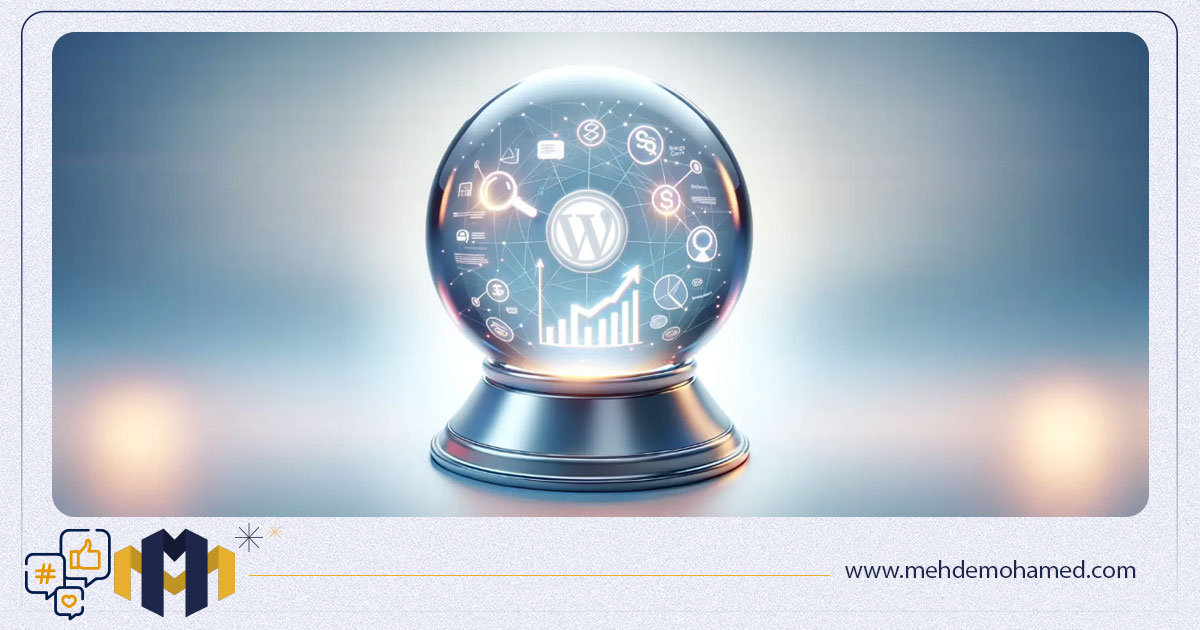Predicting the future of WordPress is tricky, but based on current trends and announcements from the WordPress team, here are some exciting possibilities for the future of WordPress:
Table of Contents
Increased ease of use: WordPress aims to become even more user-friendly, potentially through simplified interfaces, AI-powered content creation tools, and intuitive drag-and-drop functionalities. This could attract even more non-technical users to build their websites with WordPress.
Focus on headlessness: Headless WordPress, where the backend and frontend are decoupled, is gaining traction. This allows for building highly customized and interactive web experiences, catering to the demands of complex websites and progressive web apps (PWAs).
Integration with AI and machine learning: Expect to see features utilizing AI for tasks like automatic image optimization, personalized content recommendations, and accessibility checks. Machine learning might also power advanced analytics and insights for improved website performance and user engagement.
Focus on performance and security: WordPress will likely prioritize speed and security even more, with faster core updates, optimized code, and built-in security features. This will ensure websites remain reliable and perform well even with increasing complexity.
Growth of the Gutenberg block editor: Its capabilities will likely expand, making it more efficient and offering more advanced functionalities for building rich and dynamic layouts. This could further reduce the need for traditional plugins and themes.
Emphasis on community and accessibility: The WordPress community is known for its collaboration and support. We can expect further initiatives fostering inclusivity and making website building accessible to everyone, regardless of technical expertise.
WordPress is An Ever-Evolving Digital Superhero
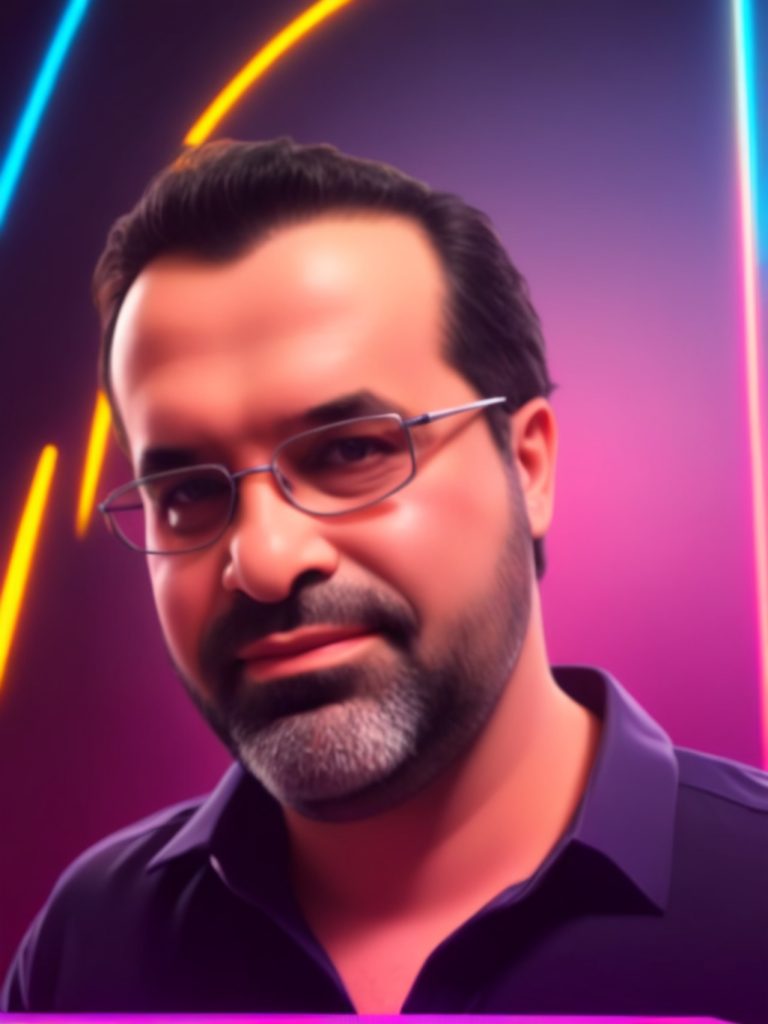
As a WordPress developer for over a decade, I’ve seen this CMS grow, constantly evolve, and save the day for millions of websites worldwide. And trust me, its future looks more dynamic and versatile than ever.
Picture WordPress as a shape-shifting wizard capable of transforming to meet the needs of virtually any site you can imagine blogs, e-commerce stores, educational platforms, you name it!
In the coming years, WordPress will continue to conquer more territory. We’ll see it power everything from mega e-commerce empires to niche hobby blogs and everything in between. The Gutenberg block editor is just starting; it will be more intuitive and flexible, making website building as easy as playing with digital Lego bricks.
Of course, it’s not all smooth sailing. There will be challenges ahead—compatibility headaches and plugin drama. But, just like a good comic book story, WordPress will continue to face these obstacles head-on and emerge more robust with every update.
One thing is for sure—WordPress isn’t going anywhere. It’s here to keep evolving, surprising us, and being the web’s most reliable digital superhero.
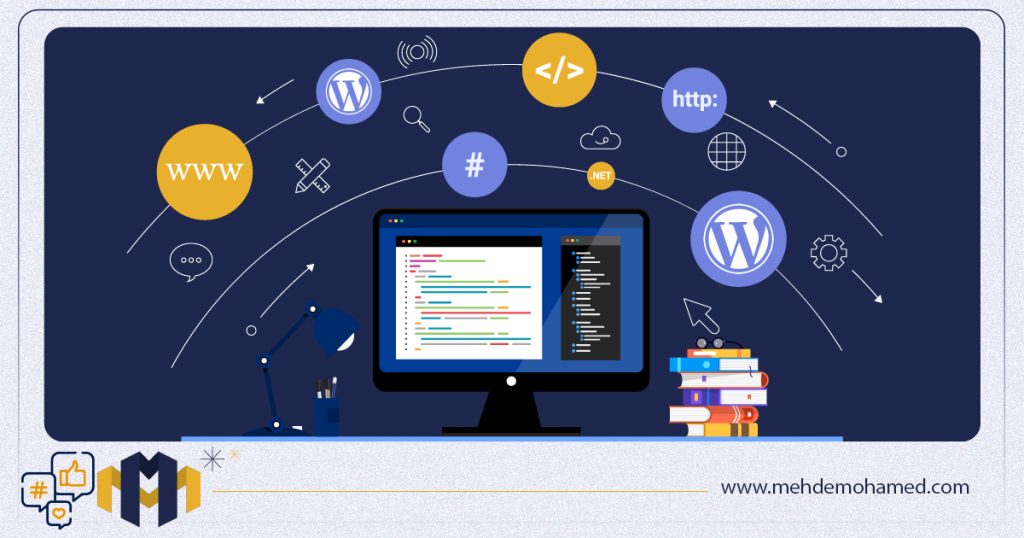
Predicting the Future of WordPress
Increased Ease of Use: Democratizing Website Building on WordPress
Imagine building a website that feels more like assembling colorful Lego bricks than deciphering cryptic code.
That’s the vision for the future of WordPress, where technology empowers, not intimidates. Here’s how we might see ease of use evolve:
- Simplified Interfaces: Think sleek, intuitive dashboards with minimal clutter designed for straightforward navigation and action. Think of one-click solutions for everyday tasks like adding images, creating forms, or embedding videos.
- AI-powered Content Creation: Imagine AI assistants suggesting headlines, optimizing SEO, or generating draft text based on your ideas. Are you worried about losing the personal touch? Use AI as a helpful collaborator, not a replacement for your unique voice.
- Intuitive Drag-and-Drop Functionalities: Gone are the days of fiddling with code to tweak layouts. Visual builders will allow you to drag and drop pre-designed elements, like text boxes, buttons, and galleries, effortlessly creating stunning and professional-looking pages.
- Onboarding and Tutorials: Imagine step-by-step guides tailored to your needs, walking you through everything from setting up your website to optimizing your first blog post. Interactive tutorials could become integral to the experience, ensuring you always feel safe.
- Automated Accessibility Checks: Building an accessible website shouldn’t require specialized knowledge. Imagine WordPress automatically flagging potential accessibility issues and suggesting solutions, ensuring your website caters to everyone.
Impact and Benefits:
- More Creators, More Voices: By lowering the barrier to entry, WordPress empowers anyone with a story to share it online, fostering a diverse and vibrant digital landscape.
- Reduced Reliance on Developers: Basic website maintenance becomes manageable for creators themselves, reducing dependence on developers for minor changes.
- Increased Website Quality: With user-friendly tools, even beginners can create polished and professional-looking websites, enhancing the overall aesthetic of the internet.
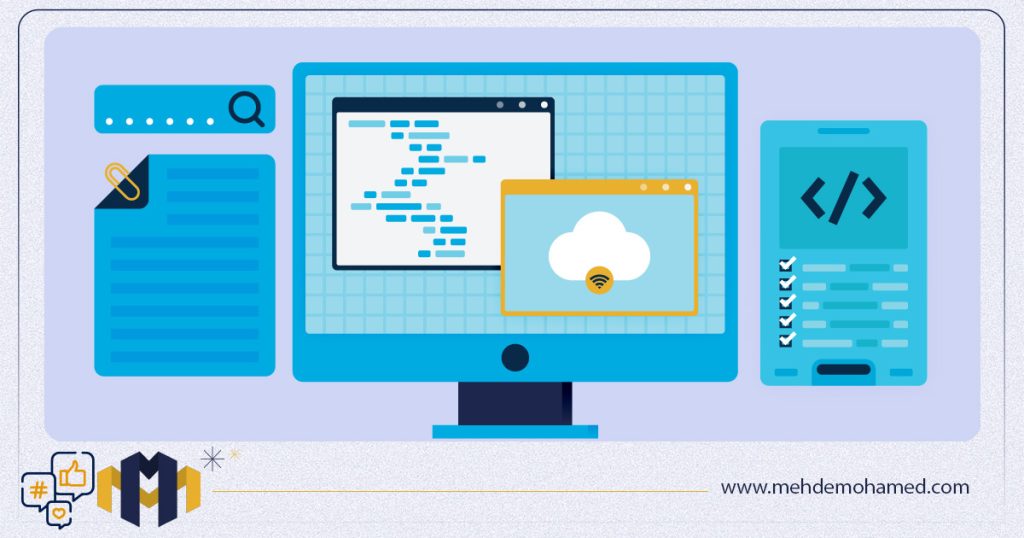
Predicting the Future of WordPress
The future of WordPress is about putting the power of website creation in the hands of everyone, regardless of technical expertise. It’s about making beautiful, functional, and accessible websites a breeze to build, democratizing the online space, and empowering new voices to be heard.
Focus on Headlessness: Unleashing WordPress’s True Potential
While WordPress traditionally served as a complete website solution, headless WordPress flips the script, offering incredible flexibility and power for the future.
Decoupling Creativity and Content
Imagine the front end of your website (what users see) built with cutting-edge JavaScript frameworks like React or Vue.js. At the same time, WordPress remains the dynamic powerhouse managing your content in the backend. This separation unleashes unparalleled creative freedom:
- Build Stunning, Bespoke Experiences: Ditch traditional themes’ limitations and craft unique interfaces tailored to your brand and audience. Experiment with cutting-edge technologies and create immersive, interactive experiences.
- Future-proof Your Frontend: Leverage the ever-evolving landscape of frontend frameworks without worrying about WordPress core updates breaking your website. Choose the best tools that fit your needs and seamlessly adapt to future advancements.
- Omnichannel Content Delivery: Headless empowers you to deliver content to any device or platform. Build mobile apps, progressive web apps (PWAs), or even voice-activated interfaces, all powered by the rich content managed in WordPress.
Benefits Beyond Flexibility:
- Unmatched Performance: By offloading frontend rendering, headless websites can achieve blazing-fast speeds, improving user experience and SEO ranking.
- Enhanced Scalability: Need to handle millions of users? Headless architecture readily scales to accommodate traffic surges, ensuring your website remains reliable under pressure.
- Improved Security: Separating presentation from content management minimizes potential security vulnerabilities, keeping your valuable data safe.
However, being headless is only for some. It requires more technical expertise and might be better for simple websites. But for businesses and creators seeking exceptional performance, flexibility, and future-proof solutions, headless WordPress opens doors to unimaginable possibilities.
The Future of Headless:
Imagine WordPress becoming the content hub for all your digital experiences, powering websites, apps, and connected devices. With headless architecture at its core, WordPress can evolve into a genuinely universal content management platform, shaping the future of digital creation.
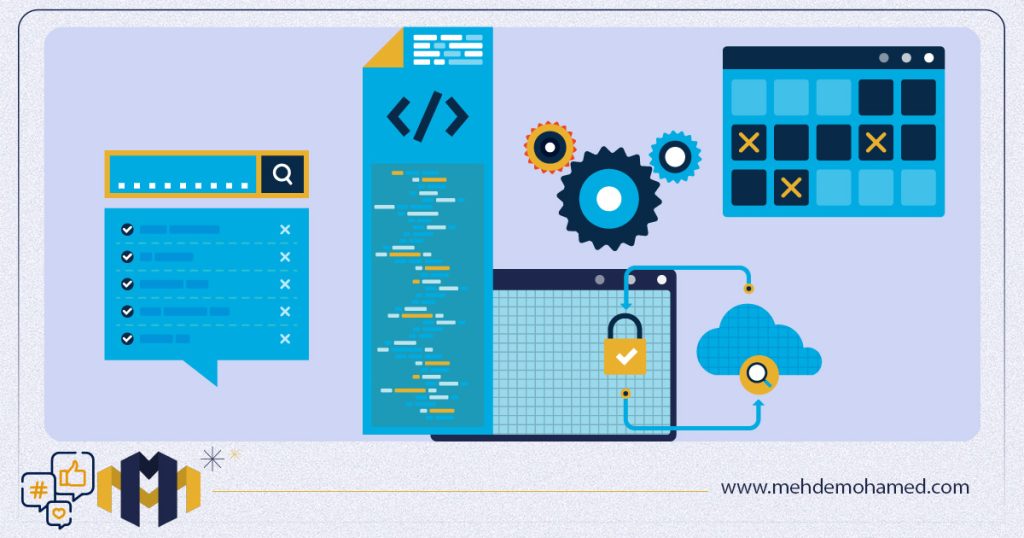
Predicting the Future of WordPress
Remember, this is just a glimpse into the potential of headless WordPress. As the technology matures and evolves, even more exciting possibilities will emerge, making it a powerful tool for shaping tomorrow’s digital landscape.
Integration with AI and Machine Learning: Transforming WordPress into a Smart Partner
The future of WordPress lies not just in ease of use or flexibility but in its ability to think and act proactively through the power of AI and machine learning.
Imagine a WordPress that becomes your intelligent co-pilot, automating tasks, optimizing your website, and even predicting your needs. Here’s how AI could transform your WordPress experience:
AI-powered Content Creation:
- Intelligent Content Assistants: Say goodbye to writer’s block! AI assistants can suggest headlines, generate outlines, and draft content based on your style and target audience. Imagine a system that personalizes your blog posts to resonate with different readership segments.
- Automated Image Optimization: No more manually resizing and optimizing images. AI can automatically adjust images for different devices and platforms, ensuring optimal performance and SEO.
- Content Translation in Real-time: Expand your reach globally with AI-powered translation that seamlessly adapts your content for different languages, breaking down language barriers and attracting a wider audience.
Personalized User Experiences:
- Predictive Content Recommendations: AI can analyze user behavior and recommend relevant content, keeping visitors engaged and exploring your website deeper and more profoundly. Your website is more profound. Imagine a system that suggests related articles, products, or courses based on individual user preferences.
- Dynamic Personalization: AI can personalize website layouts, colors, and content based on user demographics, location, and past interactions. Imagine a website that adapts to each visitor’s unique needs and preferences, creating a truly individualized experience.
- Conversational Interfaces: AI-powered chatbots can answer user queries, provide support, and even guide them through specific tasks. Imagine a website that feels like having a helpful assistant available 24/7.
Automated Website Management:
- AI-driven Security: Say goodbye to constant security updates! AI can continuously monitor your website for vulnerabilities and suspicious activity, automatically taking action to prevent threats. Imagine a system that learns from past attacks and proactively adapts to safeguard your website.
- SEO Optimization on Autopilot: AI can analyze your content, competition, and search trends, suggesting SEO improvements and automatically adjusting your website for better search engine ranking. Imagine a system that constantly optimizes your website for visibility, saving you time and effort.
- Performance Monitoring and Improvement: AI can constantly monitor website performance, identifying bottlenecks and suggesting optimizations. Imagine a system that automatically tweaks settings and resources to ensure your website delivers a fast and seamless experience.
The Future of AI in WordPress:
Remember, these are just initial steps on the path of AI-powered WordPress. As the technology evolves, we can expect even more intelligent features, like AI-powered content creation tools that adapt to writing styles and tones or chatbots that engage in natural conversations with users.
This future holds immense potential for businesses and creators alike. Imagine a WordPress that not only manages your content but actively improves it, personalizes user experiences, and even predicts your needs. With AI as a partner, WordPress can become a powerful tool for growth, engagement, and innovation, truly shaping the future of digital content creation.
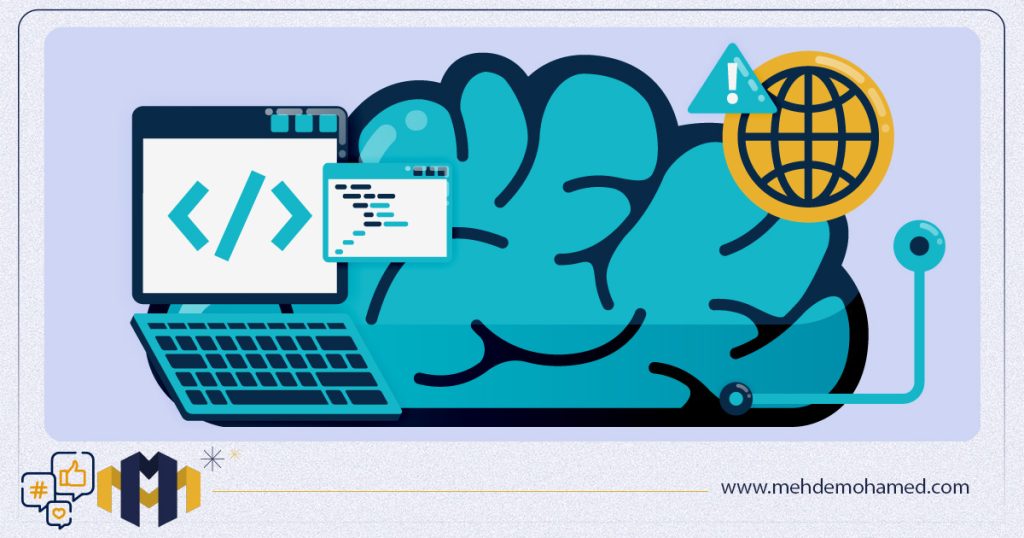
Predicting the Future of WordPress
Focus on Performance and Security: Building a Bulletproof WordPress Fortress
In today’s fast-paced digital landscape, website performance, and security are no longer nice-to-haves but necessities. The future of WordPress will see an unwavering commitment to both, ensuring websites remain lightning-fast, resilient, and trustworthy.
Performance Optimization on Autopilot:
Imagine a WordPress that constantly analyzes and optimizes itself for speed. AI-powered tools will automatically:
- Minify and combine files: Reduce page load times by streamlining code and resources.
- Optimize images: Resize and compress images without sacrificing quality, ensuring fast loading across all devices.
- Lazy load content: Load content only when needed, improving initial page load speed.
- Utilize a Content Delivery Network (CDN): Deliver content from geographically distributed servers, minimizing latency and maximizing global reach.
Proactive Security Measures:
Gone are the days of reactive security patching. The future of WordPress will be characterized by:
- Real-time threat detection: AI-powered security systems will continuously monitor for suspicious activity, identifying and blocking potential attacks before they can cause damage.
- Automatic vulnerability patching: Security updates will be deployed swiftly and seamlessly, eliminating windows of vulnerability hackers can exploit.
- Two-factor authentication (2FA) as standard: Adding an extra layer of protection for logins and critical actions.
- Integration with security plugins: Advanced security plugins will be deeply woven into the core platform, offering comprehensive protection against various threats.
Benefits Beyond Speed and Security:
- Improved SEO: Faster websites rank higher in search results, attracting more organic traffic.
- Enhanced User Experience: Speedy websites keep users engaged and returning for more.
- Reduced Costs: Proactive security measures can prevent costly breaches and data loss.
- Increased Trust and Credibility: Secure websites inspire confidence and loyalty in users.
The Future of Performance and Security:
The future of WordPress is not just about building websites; it’s about building fortresses. Imagine a WordPress that automatically adapts to new threats, constantly optimizes for speed, and proactively safeguards your valuable data.
This focus on performance and security will empower businesses and creators to build online presences that are fast, reliable, and trustworthy, thriving in the ever-evolving digital landscape.
Remember, this is just a glimpse into the future. As technology advances, we can expect even more sophisticated performance and security measures to be integrated into WordPress, making it the most secure and efficient platform for building websites that truly stand the test of time.
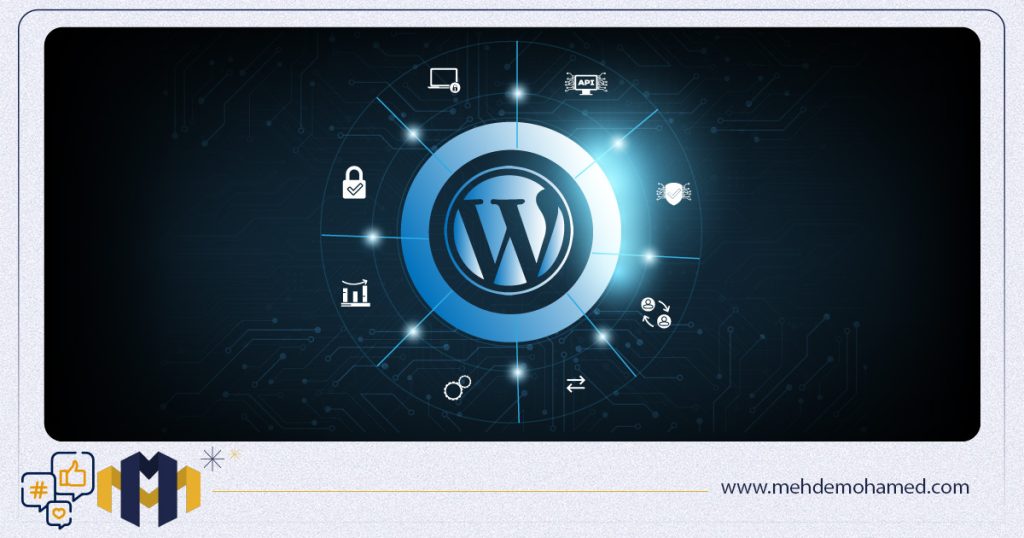
Predicting the Future of WordPress
Growth of the Gutenberg Block Editor: Beyond Bricks, Towards Creative Castles
Gutenberg, the block editor, burst onto the scene in 2018, promising a revolution in WordPress content creation. As it matures and evolves, its growth paints a picture of a future where websites are built not with rigid templates but with expressive blocks that unlock boundless creativity.
More Than Just Blocks:
Think beyond simple text and image blocks. Imagine:
- Dynamic Data Blocks: Pull live data from APIs, displaying real-time stock prices, weather updates, or social media feeds directly on your website.
- Interactive Blocks: Create quizzes, polls, and surveys that engage your audience and gather valuable insights.
- Customizable Blocks: Craft unique blocks tailored to your needs, like product showcases, event calendars, or interactive maps.
Unleashing Developer Innovation:
The block editor isn’t just for content creators; it’s a playground for developers, too. Imagine:
- Reusable Block Libraries: Share and discover pre-built block collections, accelerating website development and fostering a vibrant community ecosystem.
- Advanced Block Development Tools: Craft complex blocks with custom logic and functionality, pushing the boundaries of what’s possible within WordPress.
- Seamless Theme Integration: Build themes that seamlessly integrate with the block editor, offering creators and developers a unified and intuitive experience.
Beyond Building, Towards Storytelling:
The block editor isn’t just about assembling content; it’s about crafting narratives. Imagine:
- Dynamic Layouts: Create responsive layouts that adapt to different devices and screen sizes, ensuring your story reaches everyone perfectly.
- Microinteractions: Add subtle animations and transitions that bring your content to life, captivating your audience with engaging storytelling.
- Embedded Experiences: Integrate multimedia elements like videos, podcasts, and interactive elements seamlessly within your content, creating immersive experiences.
The Future of the Block Editor:
The future of the block editor is one where creativity has no limits. Imagine a WordPress where anyone, from casual bloggers to professional developers, can quickly build stunning, dynamic, personalized websites.
It’s a future where content becomes an immersive experience, captivating audiences and shaping how we tell stories online.
Remember, this is just the beginning of the block editor’s journey. As WordPress continues to evolve, we can expect even more innovative features and functionalities to emerge, making it the ultimate platform for unleashing creativity and crafting unique online experiences.
Emphasis on Community and Accessibility: Building WordPress, Together, For Everyone
At the heart of WordPress lies its vibrant community, a diverse and passionate group of individuals united by a common goal: making web publishing accessible and empowering for everyone.
As WordPress looks to the future, this emphasis on community and accessibility will only strengthen, fostering an inclusive environment where anyone can contribute and benefit.
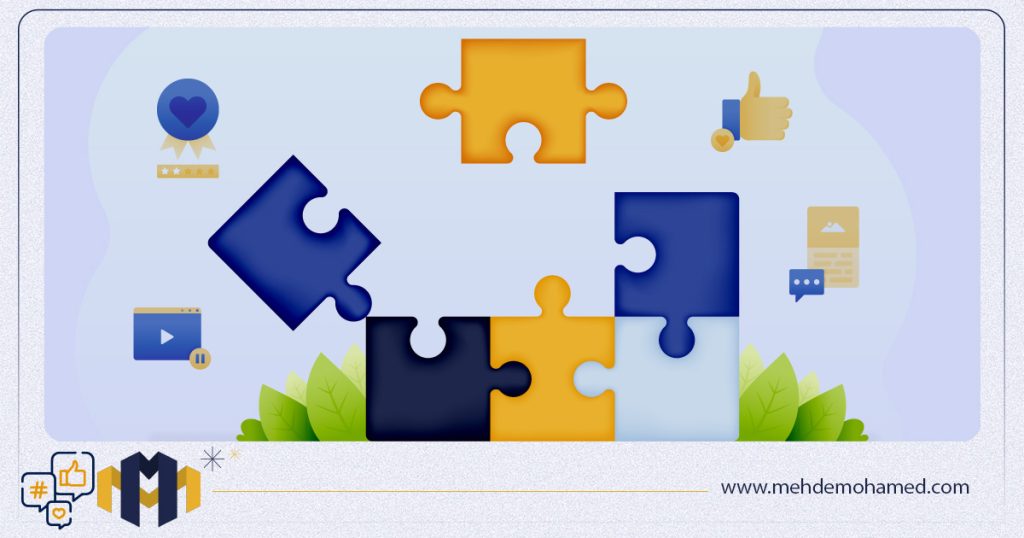
Community-driven Growth
Imagine a WordPress where:
- Contribution opportunities are diverse and accessible: Everyone can find a way to contribute, regardless of technical expertise, from writing documentation to developing code.
- Mentorship and support programs thrive: Experienced members help guide newcomers, fostering a culture of learning and collaboration.
- Translation initiatives accelerate: WordPress becomes truly global, with content and resources available in more languages than ever.
- Local meetups and events flourish: The community gathers offline, fostering deeper connections and knowledge sharing.
Accessibility for All
Imagine a WordPress where:
- Accessibility standards are baked into the core: Websites built with WordPress are automatically more accessible to users with disabilities.
- Accessibility testing tools are integrated: Identifying and addressing accessibility issues becomes seamless and painless.
- Comprehensive accessibility documentation and resources are readily available: Anyone can learn how to build accessible websites, regardless of background.
- Community champions accessibility: Advocates within the community raise awareness, educate others, and push for continuous improvement.
Benefits of a Strong Community and Focus on Accessibility
- More diverse voices and perspectives: An inclusive community leads to a more vibrant digital landscape.
- Higher quality websites: Accessibility benefits everyone, improving usability and search engine optimization.
- Increased reach and impact: Websites accessible to everyone have the potential to reach a wider audience and make a more significant difference.
- A more potent, robust ecosystem: Collaboration and knowledge sharing fuel innovation and keep WordPress at the forefront of web publishing.
The Future of Community and Accessibility
With its strong community and dedication to accessibility, WordPress is poised to become a powerful force for good in the digital world.
Imagine a future where anyone, regardless of background or abilities, can easily create and share their voice online. This is the future WordPress is building together for everyone.
Remember, this is not just a vision for the future but a reality actively shaped by the WordPress community today. By joining forces and prioritizing accessibility, we can create a digital world that is inclusive, empowering, and accessible to all.
WordPress History
Before ending this article, let’s look at the history of WordPress.
The Origins of WordPress (2003):
WordPress began as a simple blogging platform created by Matt Mullenweg and Mike Little in 2003. They sought to build a user-friendly platform after discontinuing b2 / cafelog, an earlier blogging tool that Mullenweg was using.
The first version of WordPress was released in May 2003 as an open-source platform. It offered users the ability to easily publish content online. Early on, WordPress focused on making web publishing more accessible to the average user, laying the foundation for its future growth.
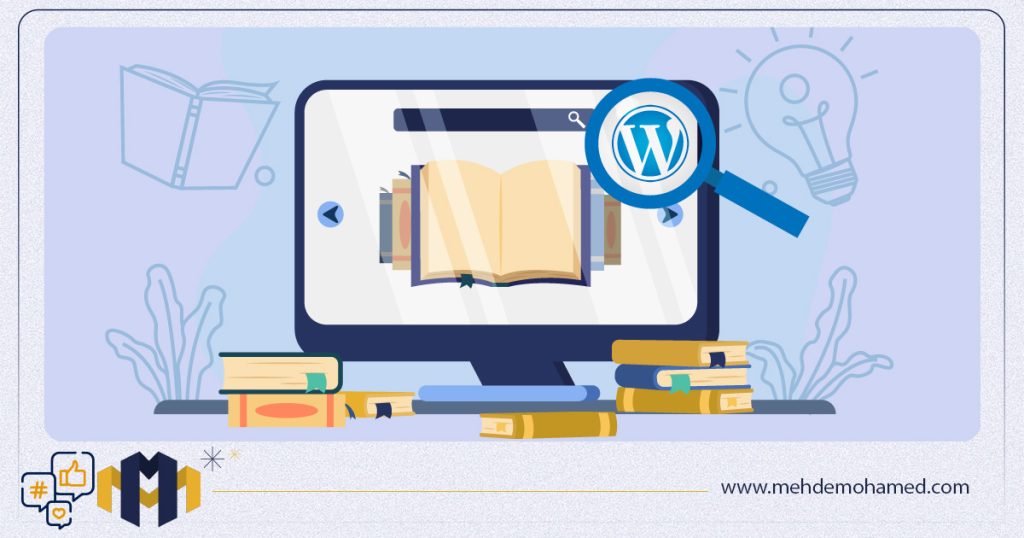
Evolution and Expansion (2004–2010):
Over the next few years, WordPress quickly grew beyond a simple blogging tool to become a comprehensive content management system (CMS). With the introduction of plugins, themes, and templates in 2004, WordPress gave developers and users a more flexible way to customize their websites without complex coding.
In 2005, Automattic, the company behind WordPress, launched WordPress.com, a hosted software version, further expanding its user base. By 2010, WordPress had established itself as one of the most popular CMS platforms globally, supported by a thriving community of developers and contributors.
WordPress Today (2011–Present):
Today, WordPress powers over 40% of all websites globally, making it the world’s most widely used CMS. Its versatility has allowed it to evolve from a blogging platform into a full-fledged website builder, supporting e-commerce, membership sites, and large enterprise websites.
With continuous updates and the introduction of features like Gutenberg (the block editor), WordPress has maintained its relevance by embracing modern web development practices. Its open-source nature and strong community support have allowed WordPress to thrive and remain a key player in the digital world.
conclusion (Predicting the Future of WordPress)
The future of WordPress is brimming with exciting possibilities. From user-friendly interfaces powered by AI to headless architecture unleashing creative freedom, from performance and security becoming priorities to the block editor evolving into a storytelling tool, WordPress is poised to adapt, innovate, and empower creators like never before.
Yet, this future won’t be written solely by code. The vibrant community, passionate about making web publishing accessible and inclusive, will shape it.
Their contributions, coupled with an unwavering focus on accessibility for all, will ensure WordPress remains a powerful platform for building websites that are beautiful, functional, and truly impactful and meaningful.
So, whether you’re a seasoned developer or a curious beginner, the future of WordPress welcomes you. Dive in, explore, contribute, and be a part of building a digital landscape that empowers everyone to create, share, and connect. The possibilities are truly endless.
Read more about:
